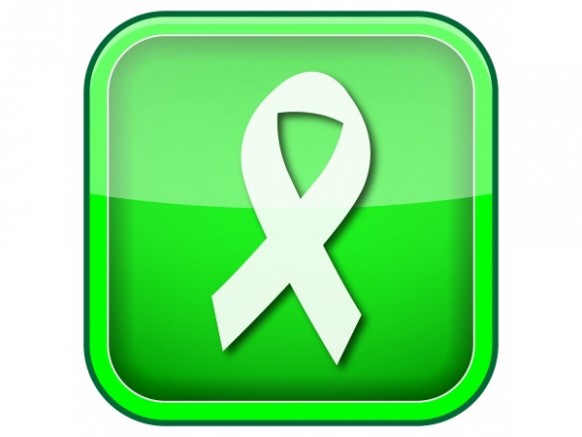Marijuana Effects on Cancer

The debate regarding the consequences of marijuana use and potential legalization has proven to be heated. Proponents of legalization insist that marijuana presents no serious risks, while those opposed to its use vehemently deny that even recreational use is harmless. Both sides are apt to present expert opinions or findings to support their viewpoint; however, a sole opinion or research finding does not render information factual. Generally, a finding must be replicated, with at least ten studies yielding similar results, for it to be accepted as legitimate.
The debate regarding the safety of marijuana is multifaceted; studies that prove its use to be legitimately safe or risky could involve a variety of factors, ranging from the potential carcinogenic effects of marijuana to the possibility for tolerance and withdrawal. Here, the ability of marijuana to be cancerous has been examined, with ten studies largely finding that the drug presents no real harm in terms of being carcinogenic.
Marijuana Compared to Tobacco as a Carcinogen
Perhaps one of the most prevalent convictions regarding the role of marijuana in the development of cancer is the belief that marijuana smoke is more carcinogenic than tobacco smoke. This viewpoint may reside in the fact that a 1973 study conducted by Cottrell, Sohn, and Vogel found that the tar from marijuana smoke, when applied to animal skin, produced tumors (as cited in Chen et al., 2008). It is vital to note, though, that the tumors formed from marijuana exposure were benign, whereas contact with the tar from tobacco smoke resulted in malignant growths.
More recent research, implemented by Talaska et al. in 1992, indicated that the compounds in marijuana smoke had no role in the development of cancers (as cited in Chen et al., 2008).
Aside from substantiating no solid link between marijuana and cancer, further research has directly compared the carcinogenicity of marijuana to tobacco. In 2008, the Journal of Psychoactive Drugs published the research conducted by Chen et al. The aim of their study was to determine the cancerous effects, if any existed, of marijuana use. The study examined the impact of marijuana on the development of various types of cancers, including lung cancer, which is often associated with smoking.
Contradictory to what one might expect, the study concluded that marijuana failed to produce greater incidences of lung cancer than did tobacco use. After eliminating for the simultaneous occurrence of tobacco smoking, female marijuana smokers had a lower probability than non-marijuana smokers of developing lung cancer, a result that was statistically significant at the .05 probability level. Similar effects were observed for males.
Marijuana and Upper-Body Cancers
Marijuana is commonly conceived as being a contributor to cancers in the upper body, namely oral cancers; however, recent research discredits this belief. A 2004 study published in Cancer Research indicated that marijuana did not augment the risk of oral cancers, even among those with a genetic propensity to develop them (as cited in “Study finds no association,” 2004).
Additional research, carried out by scientists affiliated with the University of California at Los Angeles, relates to this finding, as it showed that those who smoke marijuana are not more likely to develop cancer of the upper body, specifically in the head or neck (Cavaliere, 2007).
Aside from cancer of the mouth, head, and neck, speculation may revolve around the fear that marijuana can cause brain cancer. Fortunately, research indicates that the drug can actually protect against it. An additional 2004 study published in Cancer Research indicated that by killing malignant cells, the cannabinoids in marijuana actually provide an effective treatment to brain cancer when chemotherapy and other methods fail (as cited in “More cancer fighters,” 2004).
General, Protective Effects of Marijuana on Cancer
Not only do studies prove that marijuana doesn’t cause certain cancers; they also indicate that, perhaps, marijuana can protect against and treat cancer. In 2005, researchers published work in Mini Reviews in Medicinal Chemistry, asserting that marijuana has an anticancer effect, as the cannabinoids it contains can contribute to the death of cancerous cells, inhibiting growth and spreading (Kogan, 2005). Salazar et al. (2009) would agree with this evidence, as their research cites animal studies which have shown an inhibition of tumor growth as a result of cannabis administration.
Specifically speaking, compounds in cannabinoids have been proven to be affective in the treatment of breast cancer, according to a study featured in Molecular Cancer Therapeutics. It seems that the compounds treat aggressively-spreading breast cancer, impeding upon the expression of genes responsible for the growth and movement of cancer away from the initial tumor (as cited in “Marijuana compound shows,” 2007). Confirming this finding, German researchers for the University of Rostock found that key compounds in marijuana retard tumor growth, publishing the results in the Journal of the National Cancer Institute (as cited in “Marijuana may inhibit,” 2008).
With a substantial body of evidence concluding that marijuana presents no carcinogenic risk and is possibly effective in cancer treatment, opponents of marijuana use would be wise to reconsider their views regarding the substance, remembering that marijuana use is a personal choice. Furthermore, law makers and medical experts would be justified in introducing medical marijuana as a viable form of treatment.
References:
Cavaliere, C. (2007). “Study finds no link between cannabis use and lung, head, or neck cancer.” HerbalGram, 73, 20.
Chen, A., Chen., T., Braverman, E., Acuri, V., Kerner, M., Varshavskiy, M., Braverman, D., Downs, W., Cassel, K., & Blum, K. (2008). “Hypothesizing that marijuana smokers are at significantly lower risk of carcinogenicity relative to tobacco non-marijuana smokers: Evidenced based on statistical reevaluation of current literature.” Journal of Psychoactive Drugs, 40(3), 263-272.
Kogan, N. (2005). “Cannabinoids and cancer.” Mini Reviews in Medicinal Chemistry, 5(10), 941-952.
“Marijuana compound shows promise in fighting breast cancer.” (2007, Nov. 19). Ascribe Newswire: Health.
“Marijuana may inhibit tumor cell growth.” (2000, Jan. 21). Arabia.
“More cancer fighters.” (2004). Better Nutrition, 66(11), 25.
Salazar et al. (2009). “Cannabinoid action induces autophagymediated cell death through stimulation of ER stress in human glioma cells.” Journal of Clinical Investigation, 119(5), 1359-1372.
“Study finds no association between marijuana use and incidence of oral cancer, contrary to previous reports.” (2004, June 1). Ascribe Newswire: Health, pgs. 5-8.
Euflora
1600 GLENARM PL SUITE 2902
Denver, Colorado 80202
(303) 534-6255
As Seen On…

Euflora Technologies


Comments are closed.